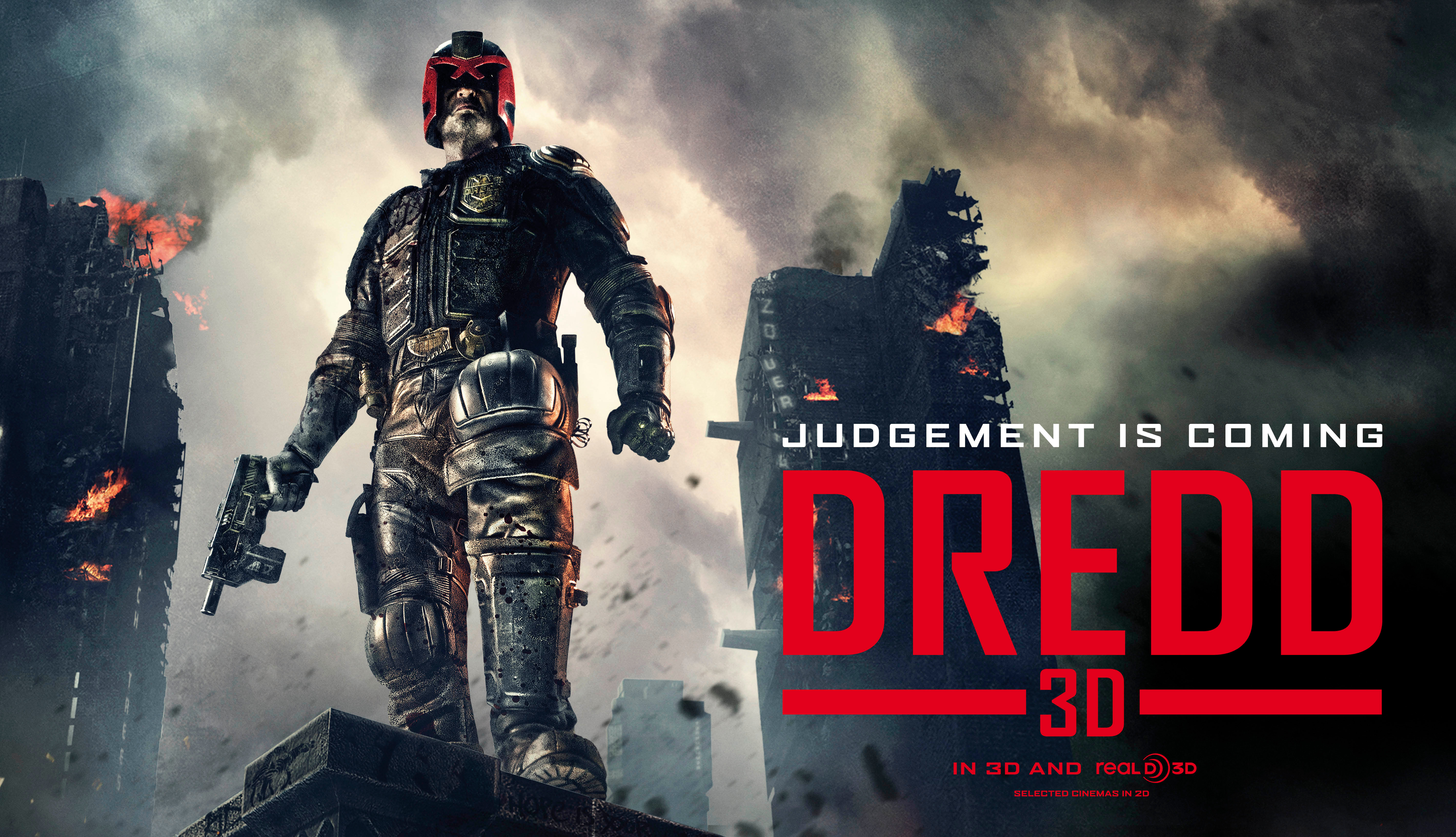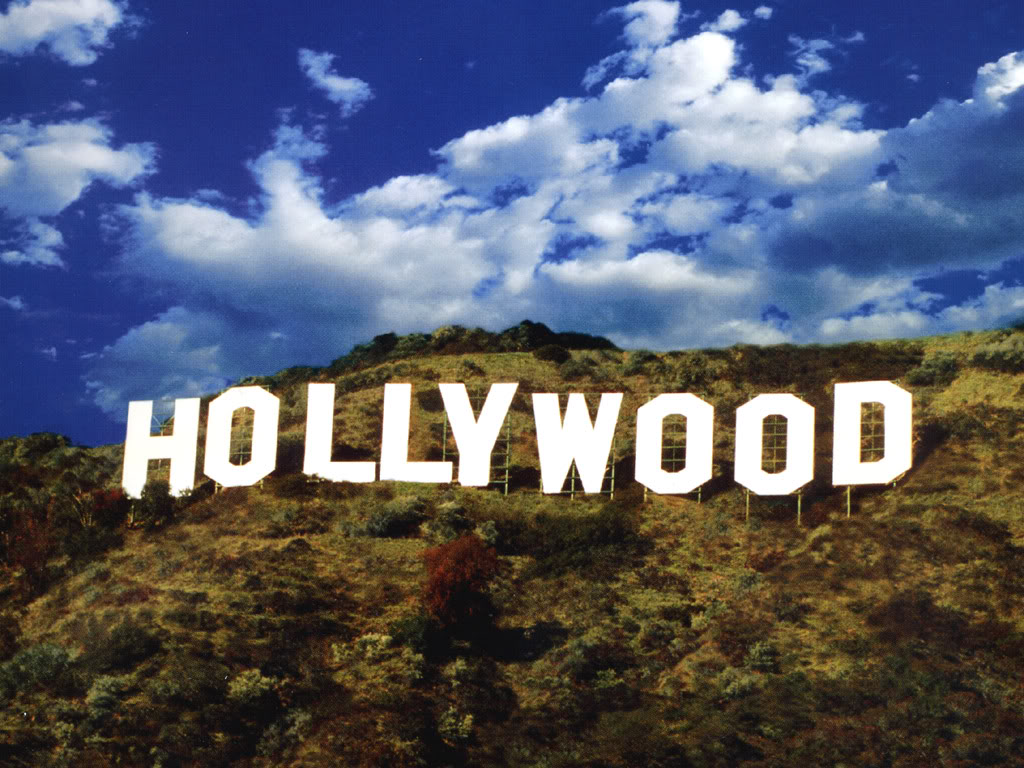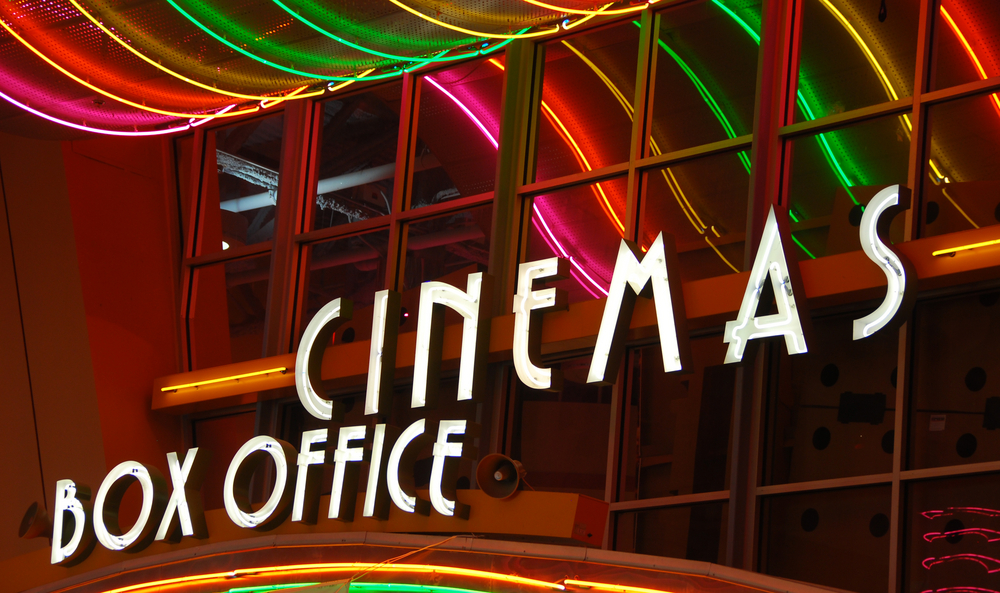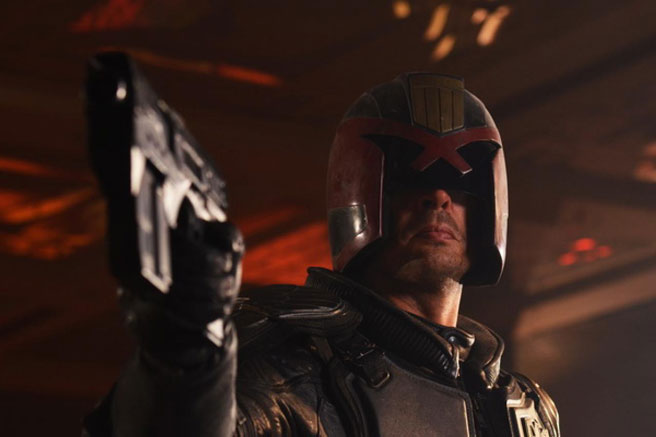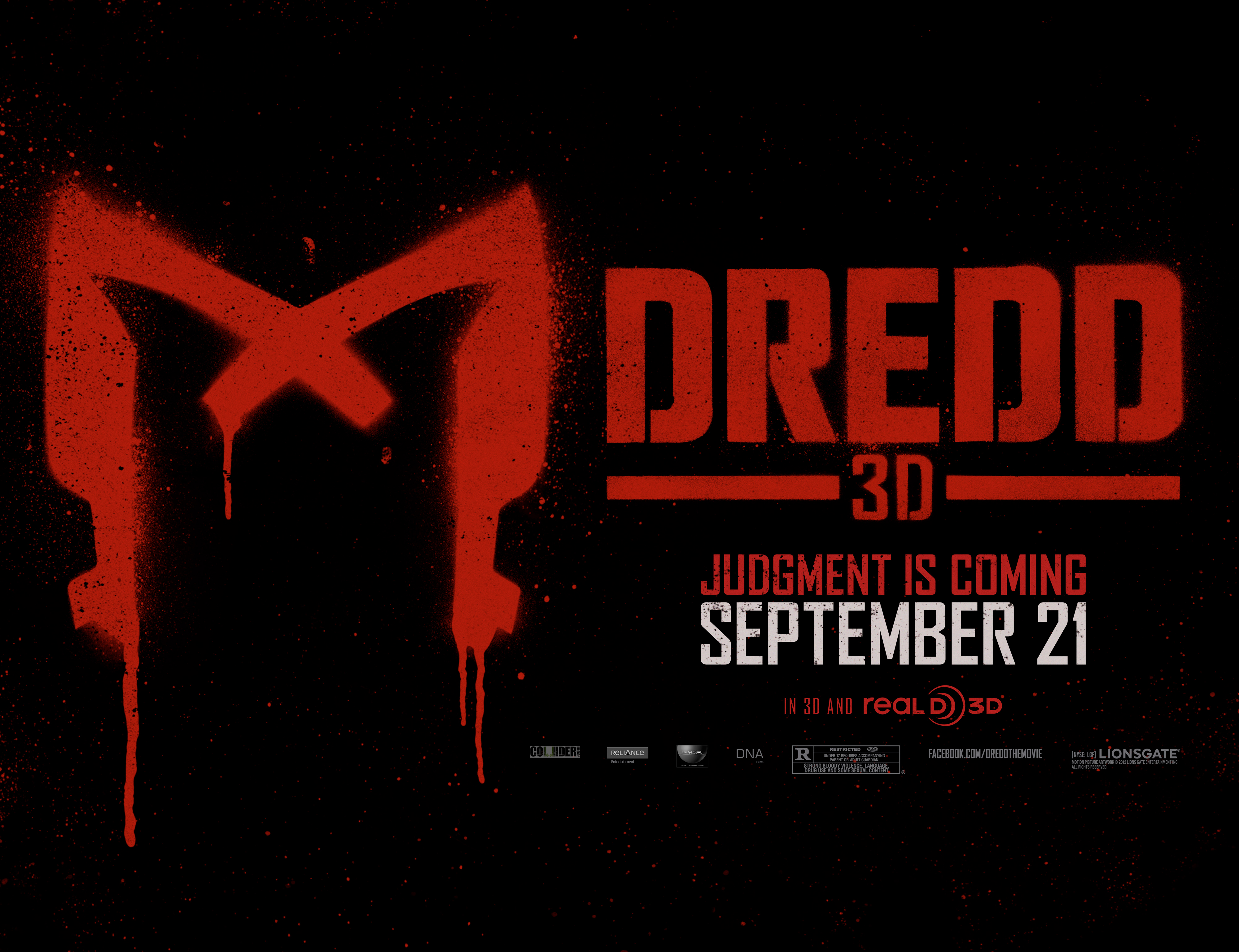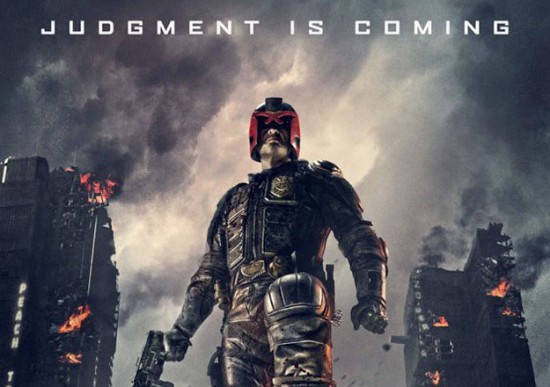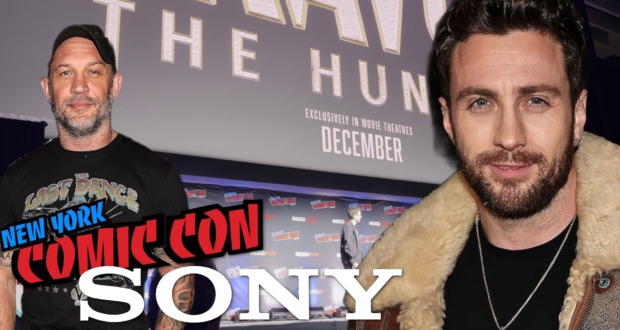There is a unique moment in ‘Dredd’ (2012) that defines the overall tone of the film. There’s an absolute moment that showcases the violence of the film and it’s right at the beginning of the damn movie. Have you ever seen a hit and run? Maybe not necessarily in real life (hopefully not), but maybe in the curious nature of watching traffic camera footage on YouTube or a bystander’s video recording uploaded somewhere else on the internet and you witness and react accordingly.
It’s brutal.
bru•tal [broot-l] adjective
1. savage; cruel; inhuman: a brutal attack on the village.
2. crude; coarse: brutal language.
3. harsh; ferocious: brutal criticism; brutal weather.
4. taxing, demanding, or exhausting: They’re having a brutal time making ends meet.
5. irrational; unreasoning.
The visual sight of the event and the absolutely TERRIFYING auditory sound of a body, – a human body -, being struck by a vehicle at high speed is not something you just shake off. Whether by accident or just complete disregard, as the impact happens, the body flails in an uncontrollable manner and the force of the impact is beyond anything that is conceivably natural. Flailing like a rag doll, the blood that follows on impact, the rolling aftermath of the human body as it finally comes to a stop. Not willingly or by control, but stopping because the momentum has finally allowed the body to stop. The body itself is disregarded and only the motion exists or ceases because that’s the result of impact, a start and eventual end.
 If that description is squeamish for you in the slightest, you should know that the mere simple thought of the hyper grit ‘realness’ of film defines this movie. Simply put: that’s Dredd. And it’s not by accident, it’s by design. I consider myself a “glorified violence” type of guy, but I caught myself turning away from the screen during a couple moments in this film. For me it was the level of detailed visualization which was just outright unexpected, and it wasn’t the stylized reality it was these moments of realism with purposeful cinematography. In a day and age where there is a decent level of desensitization going on in the world it was quite surprising to witness. Not the in banal sense but because violence works as a tool or utility in the film rather than a moment to exploit. In Dredd the violence is controlled with how much blood you see and the speed at which things occur. This is translated from the on-screen action, to your eye, to your brain and the thought process of how an inherent scene is expected to unfold. The force of impact of a punch or kick, an explosion, the aftermath, even the precursor to the event, the sound effects involved, the camera angles used, the nature of which and how subject matter reacts. In many ways, it becomes spatially creative and based on the level of brutality you might see, that dictates the films’ MPAA rating.
If that description is squeamish for you in the slightest, you should know that the mere simple thought of the hyper grit ‘realness’ of film defines this movie. Simply put: that’s Dredd. And it’s not by accident, it’s by design. I consider myself a “glorified violence” type of guy, but I caught myself turning away from the screen during a couple moments in this film. For me it was the level of detailed visualization which was just outright unexpected, and it wasn’t the stylized reality it was these moments of realism with purposeful cinematography. In a day and age where there is a decent level of desensitization going on in the world it was quite surprising to witness. Not the in banal sense but because violence works as a tool or utility in the film rather than a moment to exploit. In Dredd the violence is controlled with how much blood you see and the speed at which things occur. This is translated from the on-screen action, to your eye, to your brain and the thought process of how an inherent scene is expected to unfold. The force of impact of a punch or kick, an explosion, the aftermath, even the precursor to the event, the sound effects involved, the camera angles used, the nature of which and how subject matter reacts. In many ways, it becomes spatially creative and based on the level of brutality you might see, that dictates the films’ MPAA rating.
And for Dredd, it’s a hard rated R.
Dredd is based on the British science fiction anthology 2000 AD comic book Judge Dredd which started back in 1977. Dredd takes place in a dystopian future where healthy civilization has been destroyed by countless conflicts and war. The Earth consists mostly of an irradiated wasteland referred to as ‘Cursed Earth’. What’s left of humanity have gathered to megalopolis sized cities or simply called ‘Mega-cities’. The world of Dredd takes place in “Mega-City One”, a vast and violent concrete mass spanning miles along the east coast from what was once Boston to New York. 800 million people reside in Mega-City One and with the enormous population, crime is normality. The only force of order is the Judges, who act as judge, jury and executioner. Over 17,000 crimes are reported daily and of this number the Judges can only respond to approximately 6%. Dredd is a compact film, as it follows its namesake, Judge Dredd, in a day-in-the-life story. Despite its’ condensed narrative, the film works exceptionally well as it both roots and provides a foundation to its’ overall world.
It’s rare to see hard rated R films nowadays. A lot of the box office draw comes from appealing to the majority which means ensuring something like a PG-13 to allow under aged audience members to buy that additional ticket. Part of my own penchant for rated R films is that they don’t hold back. It’s not violence for violence’s sake or excessive swearing for the sake of having X amount of swears in a film instead I view it as a creative license. Not all cases lead to success, but in Dredd it works from start to finish and as a result is a complete film.
For the subject matter on hand, being able to translate an appropriate Judge Dredd was very important. And I don’t think it could’ve been done any way without being a rated R film. The R rating allows an appropriate characterization of not only Judge Dredd but also a characterization of the dystopian society that remains. It’s important, as survival in Mega-City One is one of death at any moment. It’s unflinching as it is unnerving and the creative license as I mentioned prior, it constitutes this film at an appropriate level that is needed.
 Even though we recognize Karl Urban as Judge Dredd, he is displayed instead as an enigmatic figure of the law. Urban’s does a great job with his performance and it works to the benefit of the setting because he successfully portrays Dredd as a figurehead, rather than a standard character. It matters that it’s Karl Urban because he’s been cast specifically for the role but it doesn’t matter that we recognize him. It’s like Hugo Weaving’s performance as V, in V for Vendetta.
Even though we recognize Karl Urban as Judge Dredd, he is displayed instead as an enigmatic figure of the law. Urban’s does a great job with his performance and it works to the benefit of the setting because he successfully portrays Dredd as a figurehead, rather than a standard character. It matters that it’s Karl Urban because he’s been cast specifically for the role but it doesn’t matter that we recognize him. It’s like Hugo Weaving’s performance as V, in V for Vendetta.
For Judge Dredd he’s been there, done that and had to do things we can’t even imagine, simply because it’s his job as a Judge. We watch how the very simple definition of law is personified in a person, or more respectively in a Judge. Judges are defined by the uniform and the presence it carries but especially by the helmet which adorns their faces. The Helmet masking their inherent identity and, despite the Judges having names, most become fearful symbols among the masses. Fear is needed and in some messed up way, the fear of law is a shadowed hope. Being a Judge requires a will to survive, the juggling of simple decency and morality, while flirting on edge of fighting against a cesspool of everything that could be wrong. And where that wrong has seemingly become the corrupt right. There is no glory. There is no praise. This is life in Mega-City One.
And if you think it’s tough to survive as a mere citizen, upholding the law in a sea of lawlessness is far more brutal. Dredd looks at what we know of modern society and shows us a future society where maintaining your own morality is questionable. Or maybe simply asks.
Could you?
Hope is non-existent and it’s a wonder of what is still worth living for in Mega-City One. Those that rule, or are ruled, those that live, or try to live, why, who and what their own reasons are for simply living are looked at in Dredd in the micro sense. And it’s this underpinning that the creative license of a rated R film gives. For Judge Dredd, the characterization of him is through his actions and these actions are violent by nature yet somehow become mandatory. In the end, it is a gritty realistic necessity to accurately depict violence on violence for resolution and showing how the law is carried out. The due process is immediate and a simple day-in-the-life of a Judge is a seemingly heavy thing to undertake.
The story of Dredd, as mentioned, is simple: Judge Dredd is given the assignment of assessing potential rookie candidate, Judge Anderson played by Olivia Thirlby. How she responds and acts to a single day’s events will determine whether she passes or fails the evaluation. Judge Anderson is initially a marginal candidate but is exceptional for one reason: she is a mutant of the Cursed Earth. With telepathic abilities she is able to cognitively read, associate and disassociate situations which could prove to be an asset. However due to her marginal candidacy, it’s up to Judge Dredd to determine her merit. In all the ways Judge Dredd is the worst mentor to have, but he is also undoubtedly the best. Because the characterization in this film doesn’t hold back and again it’s this subtlety that the R rating provides. Judge Anderson provides the newcomer’s perspective, the inherent standard character development, where seeing things first-hand will change you and is far different from simply hearing stories. You might think you’re prepared, but in order to know you are, you must be thrust into the deep-end. And as Judge Dredd puts it, “It’s all the deep-end.” For the viewers it’s the same perspective, we might have seen rated R films before and by that standpoint Judge Dredd shouldn’t be any different. But it isn’t and in the same ways shouldn’t be compared by other standards. It unexpectedly surprises.
The film kicks off when Judge Dredd asks Judge Anderson to randomly pick a reported crime to respond to. She chooses to respond to the multiple homicides at the 200 floor super structure, Peach Trees. There we meet villainess Ma-Ma, played excellently by Lena Headey and we embark on a parallel journey from the perspective of Judge Dredd and Judge Anderson. Without going into anymore spoilers, the resulting film from characters to story is thoroughly enjoyable. The pacing is steady and despite its’ low budget the depiction of the world is well done. As much as Dredd has a massively macro setting, it’s the micro environment presented which allows for a compact film that doesn’t outstretch what it wants to do, even if it could. It knows to be patient, it knows to steady, but it knows to be kinetic to change up the pace. The 3D isn’t simply marketing and presented in a manner to understand macro, shot natively in 3D, it shows purpose. It’s a comic book film done right, which is a rare thing. But it’s a hard rated R film done perfectly, which is even rarer.
Yet despite this, Dredd will remain a niche film because of its rating. The truth is we need more films that don’t hold back. They’re cinema for cinema’s sake, an enjoyable excursion giving proper rationale or reason as to why we actually go watch movies. It’s simple, it’s brutal honesty – we want good movies.
Go watch Dredd.
If this were a review I’d give Dredd, 9 out of 10.
